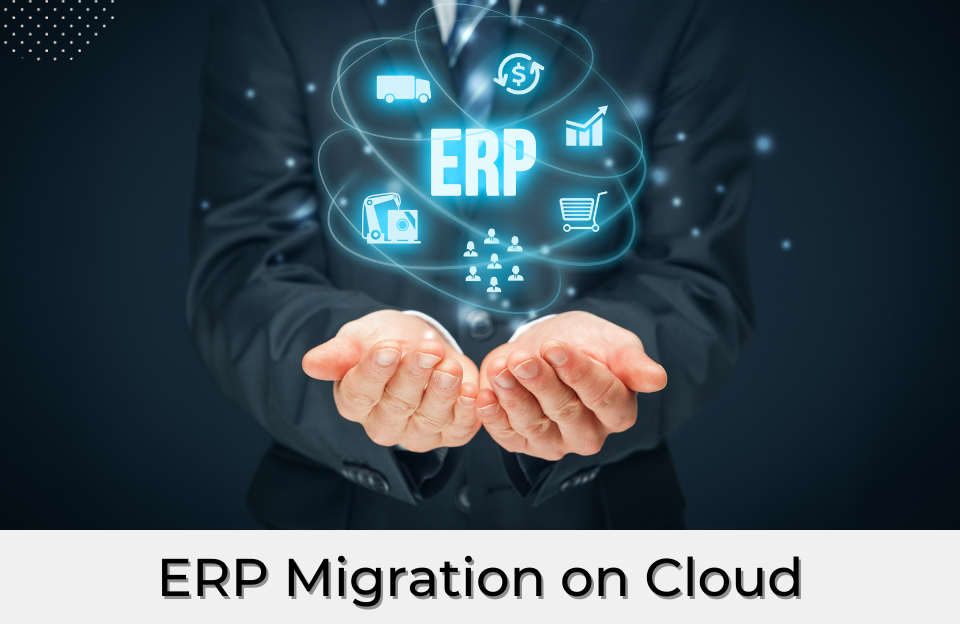ERP Migration on Cloud is one of the most critical decisions taken by a business to develop it. With the digital transformation, companies can expect to experience an enhanced digital experience and to use Cloud ERP for high data security.
However, several companies are hesitant to use Cloud solutions for their traditional platforms and can’t take advantage of Cloud technologies. While some companies have held back from moving their traditional ERP solutions to the cloud due to the expense, there are lots of reasons why they have been unwilling to do so.
This can be because ERP migration on Cloud is a bit complex process that needs special attention, and if any migration process fails, then the business process might face risk. But, if everything is performed carefully, ERP migration on Cloud delivers the authentic business output.
The demand for Cloud business is increasing at a fast pace. However, it offers undeniable benefits like cost-saving, system flexibility, and so on.
Companies that are beginning to transform are paving the way forward, while others seek fast ways to move ERP Migration on Cloud and stay competitive in the new environment.
Benefits of ERP Migration on Cloud
1. Eliminates the need for additional app licenses
With powerful ERP software, there is no need to invest in additional software licenses.
ERP Migration on Cloud reduce the need for additional hardware or data servers and license fees, significantly reducing costs.
2. Automatic Updates
Generally, an excellent cloud-based ERP migration solution sends notifications of upcoming updates. These updates are usually generated automatically on the client’s server.
Apart from this, a seasoned cloud provider will typically perform these updates and backups with little to no activity, which further saves the person-hours and keeps the system up to date and ready for use.
3. Maximum uptime
The ideal cloud ERP provider ensures minimum server downtime. This ensures less conflict and confusion when moving to the Cloud.
4. Secure data
Cloud securely store the data that is entered into the ERP software. Moreover, it can be quickly recovered in case of mishaps or disasters.
The cloud provider knows all the security protocols and provides the necessary security measures to protect your data. Besides this, any employee can access the primary information whenever they want.
5. Backup and recovery
Here, you can ask your cloud provider to implement effective disaster recovery mechanisms. You can store your precious data this way, and there is no need to concern about data loss.
6. Pay-as-you-go model
Cloud ERP solutions often use a pay-as-you-go model that can be tailored to specific customer needs.
Significantly lower implementation costs, which significantly reduces overall operating costs. The current pay-as-you-go model based on hourly usage seems attractive to the SME segment.
7. Scalability and Mobility
ERP Migration on Cloud generally offers exceptional flexibility and scalability. It also increases the number of licenses when needed and at any time.
Plus, a good provider allows companies to download and access data in real-time via the Cloud from anywhere, anytime.
Things to Consider Before Migrating ERP to Cloud
It is obvious that ERP Migration on Cloud is a risky process, but it offers impressive outcomes.
However, some essential considerations are discussed:
Set Solid Business Objectives
The migration process is performed to get the best results. This is why it is best to pre-design the business objectives at first before performing ERP Migration on Cloud.
And, this is viewed as the best practice that helps to owe the better trial on risk factors that help improve the business-related process. Then, you need to set the project goals.
Security
Security is always the primary concern, and Cloud platforms are indeed considered the secure ones. This is because they are built with universal accessibility and framework.
However, along with this, experts remain assertive concerning data security in cloud platforms.
Compliance
Migration accompanies a high risk, and it is downturn with the employing ways that further mitigate the security and associated compliance risks.
They can be resolved once you take the predefined actions with a cloud provider or partner.
Disaster Recovery
You are free to set up a disaster recovery strategy right before starting the cloud migration. However, it is necessary to conduct a system that constitutes an outage and fiscal penalty.
Cost and ROI
Both the cost and ROI are considered the demanding ground for moving ERP to the Cloud.
Thus, when proceeding to the cost-benefit analysis, several things need to keep in mind like hardware, disaster recovery, cost of HR, fault tolerance, etc.
One last thought!
Whenever you choose something for business, you think about both aspects.
However, if you perform ERP Migration on Cloud, you can expect the best results.
Therefore, keep in mind to follow the best ways that help increase the feasibility of migration.
For example, you can choose the best partners having sound expertise in the same. Or, you can be a part of the business revolution to go in hand with digital transformation.



